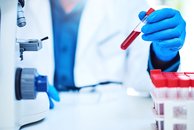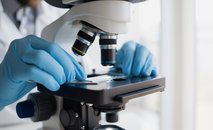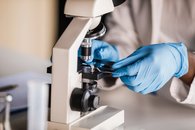Topics cover:
- symptoms and complications
- causes
- tests to diagnose or find out more
- treatments
- follow up
- what may happen in the future
-
Membranoproliferative glomerulonephritis (MPGN)
A type of glomerulonephritis, a condition that causes inflammation in the kidneys, which is usually caused by problems with the immune system.
-
Membranous nephropathy
Read about membranous nephropathy in the rare renal section of the Kidney Care UK website.

-
Mitochondrial disease affecting the kidney
Read about Mitochondrial disease affecting the kidney on the UK Kidney Association (UKKA)'s Rare Renal website.

-
Multicystic dysplastic kidney (MCDK)
Instead of a working kidney, an MCDK is made up of a bundle of cysts, which are like sacs filled with liquid.
-
Nephronophthisis (NPHP)
Read about nephronophthisis (NPHP) in the rare renal section of the Kidney Care UK website.

-
Nephrotic syndrome
Nephrotic syndrome happens in children whose kidneys leak too much protein into their urine, and causes swelling in the body.
-
Nephrotic syndrome: frequently relapsing
If your child's nephrotic syndrome keeps coming back, this is said to be frequently relapsing and may need further treatment.
-
Pelvi-ureteric junction (PUJ) dysfunction and obstruction
PUJ dysfunction means a narrowing, hold up or blockage at the point where the pelvis of the kidney joins the tube from kidney to bladder (ureter).
-
Posterior urethral valves (PUV)
Posterior urethral valves (PUV) are extra flaps of tissue in the back (posterior) part of the urethra. They develop while a baby boy is growing in the womb.
-
Post-infectious glomerulonephritis (PIGN)
PIGN happens after an infection in some children, leading to blood and protein in the urine and sometimes other complications.
-
Pregnancy and chronic kidney disease
Read about pregnancy and chronic kidney disease on the Kidney Care UK website.

-
Proteinuria
Proteinuria means there is an abnormal amount of protein in the urine (wee). Normally there is very little protein that is lost in the urine.
-
Renal agenesis
Most people are born with two kidneys. Renal agenesis (or kidney agenesis) means one or both kidneys do not develop while a baby is growing in the womb.
-
Renal dysplasia
In renal dysplasia, one or both kidneys do not fully develop, and the affected kidney does not work as well as normal.
-
Renal hypoplasia
Renal hypoplasia (or kidney hypoplasia) means that part of a kidney does not fully develop in the womb. Renal hypoplasia is relatively common – it is estimated that one baby in a few hundred will be born with one hypoplastic (small) kidney.
-
Retroperitoneal fibrosis
Read about retroperitoneal fibrosis in the rare renal section of the Kidney Care UK website.

